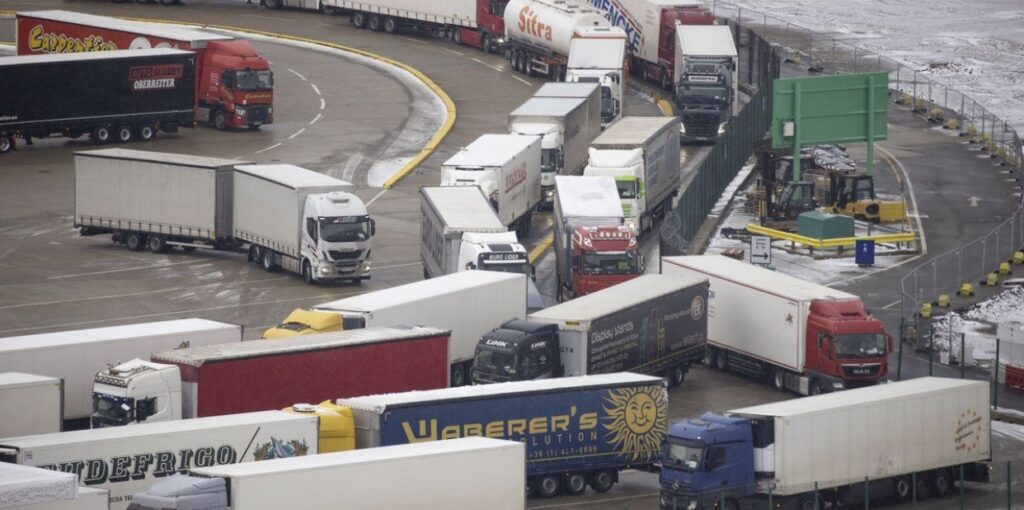U.K-EU Freight Trade Back to 90% of Normal, according to Port of Dover
There is for the moment a big debate in UK about trade volumes for GB-EU right now.
Yesterday the Road Haulage Association (RHA) stated that volumes were down 68% during January.

Cabinet office official Emma Churchill (BPDG) today said ‘trade flows have held up exceptionally well since the end of the Transition Period’ despite a dip in early January. This month total outbound across all UK ports is 98% of the equivalent last year and inbound trade is at 99%’.
Michael Gove said ’…the figure given for exports from the UK to EU falling by 68% since the start of the year ‘was erroneous and based on a partial survey’.
Freight traffic through the Port of Dover is running at 90% of usual levels, better than had been feared amid new Brexit red tape and another round of social restrictions to contain the coronavirus.
The port’s figures are higher than a U.K. government estimate of 82%, which was provided in response to claims from the Road Haulage Association that truck cargoes to the European Union were down 68% last month compared to a year earlier.
The Cabinet Office said flows through all U.K. ports last week were “close to normal” despite the impact of lockdowns on trade and denied that up to three-quarters of vehicles that had arrived in Britain from the EU were returning empty.
“It is an entirely normal part of freight flows to have empty lorries on the outbound leg from the U.K. into the EU — this has always been the case,” the government said, adding that “all IT systems and infrastructure were ready in time and are operating effectively.”
Speaking to lawmakers on Monday, Cabinet Office Minister Michael Gove said the RHA’s 68% figure was “erroneous. It was based on a partial survey.”
Nevertheless, David Emerson, a director at SEKO Logistics, said new paperwork requirements had made freight forwarding “very difficult,” especially given congestion at Felixstowe and Southampton ports. He estimated that volumes for parcels were up to 70% lower than last year.
Source: Bloomberg
You must be logged in to post a comment.